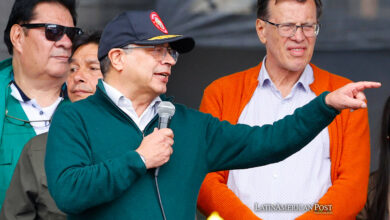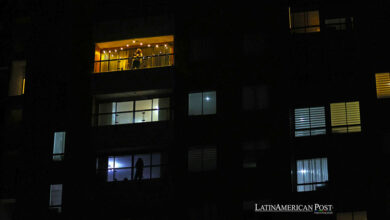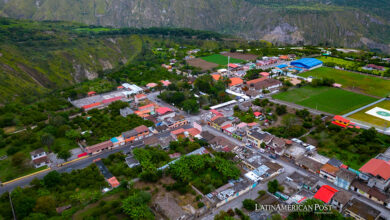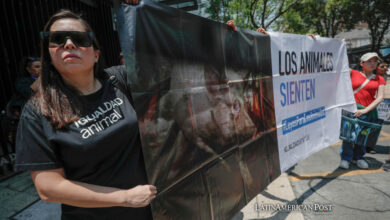Ecuador’s New Dawn: President Noboa’s First 100 Days Tackle Crime and Economic Reform
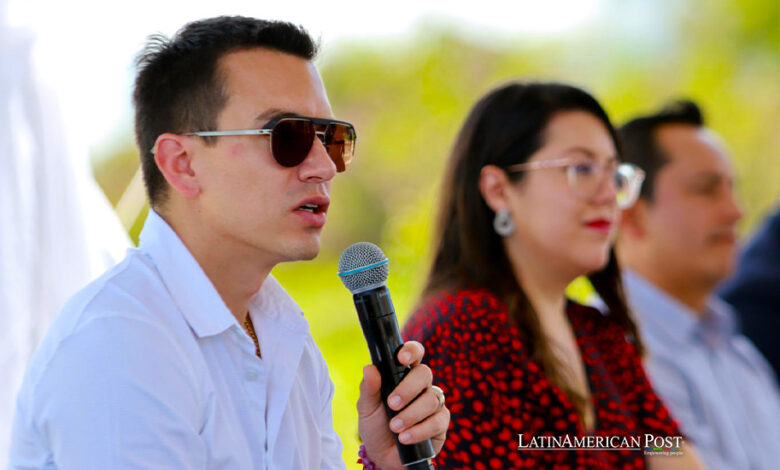
In his first 100 days, Ecuador’s youngest president, Daniel Noboa, gains popularity for his firm stance on organized crime and controversial economic reforms, including a VAT increase, amidst Latin America’s rising violence and economic challenges.
Ecuador’s President Daniel Noboa has marked his first hundred days in office with a surge in popularity, primarily attributed to his stringent approach against organized crime. By declaring an “internal armed conflict” and pushing forward contentious economic reforms aimed at stabilizing the nation’s finances, such as increasing the Value-Added Tax (VAT), Noboa has taken bold steps to address some of Ecuador’s most pressing issues. This approach is particularly significant as it comes at a time when Ecuador, under the leadership of the youngest president in its democratic history at 35, is navigating through tumultuous waters marked by a spike in criminal activities, mainly drug trafficking, and a daunting fiscal deficit of $4.8 billion—nearly 5% of its Gross Domestic Product (GDP).
The rise in criminality has positioned Ecuador among the most violent countries in Latin America, a region already grappling with similar challenges. Like Ecuador, nations such as Mexico, Brazil, and Colombia have been battling the scourge of drug trafficking and organized crime, leading to widespread violence and insecurity. These countries share the struggle against powerful drug cartels and criminal networks that not only fuel violence but also undermine economic stability and governance.
Noboa’s Success in Implementing Economic Reforms
Noboa’s political acumen has been evident in his ability to garner support for economic reforms within the National Assembly, which eluded his predecessor, Guillermo Lasso (2021-2023). By forging “mobile majorities” in the Assembly, Noboa has smoothed the path for implementing measures to boost revenue to combat the economic crisis and enhance security, including the controversial VAT increase from 12% to 15% starting in April.
One of Noboa’s most decisive actions was on January 9, when his government faced a severe crisis as an armed group attacked a television station during a live broadcast. This event coincided with violent incidents on the streets and simultaneous riots in several prisons, holding 200 hostages, including police and guards, who were eventually freed. In response, Noboa declared an “internal armed conflict” against criminal gangs, branding them as “terrorists,” and launched interventions in prisons, which had become hotbeds of insecurity controlled by criminal factions responsible for a series of prison massacres that have claimed over 450 lives since 2020.
Moreover, the government’s crackdown on drug trafficking has led to the seizure of over 64 tons of drugs, highlighting a significant blow to the drug trade with the country’s largest cocaine bust of 21.5 tons hidden in a rural farm.
Noboa’s Focus on Public Perception and Support
According to political analyst Cristian Carpio, the focus on security has been central to Noboa’s government’s sustainability. The declaration of an internal armed conflict has legitimized the president’s actions and garnered widespread support from the citizenry. This perception of enhanced security has mitigated opposition to the VAT hike and specific economic reforms. One is the controversial proposal to eliminate subsidies for some fuels—a move that historically sparked significant protests.
However, as the economic measures begin to impact daily life, there’s a growing concern that public sentiment may shift. The government is thus shifting its narrative towards job creation, acknowledging that while security improvements are recognized, economic issues are now coming to the forefront of public demand.
In line with his campaign promise, Noboa has called for a referendum on April 21, where Ecuadorians will vote on eleven questions related to security issues. This move is seen as leveraging the referendum to solidify legitimacy, not just among the populace but also within the Constitutional Court, potentially paving the way for Noboa to campaign for re-election.
Approval Ratings and Future Elections
Despite the challenges posed by economic policies, Noboa’s political capital remains strong, with approval ratings between 70% and 80%. This support is crucial as Ecuador heads into a pre-election year, with the next presidential election set for 2025, when Ecuadorians will choose a successor to complete the term initiated by Lasso.
Also read: Ecuador’s Bold Strategy Against Crime to Jump Start the Economy: A Blueprint for Latin America?
As Ecuador navigates these challenges, its experiences reflect broader issues in Latin America, where nations are similarly wrestling with the dual threats of organized crime and economic instability. Noboa’s first 100 days in office illustrate a determined, albeit controversial, approach to confronting these issues head-on, setting a precedent for Ecuador and the region as a whole.


